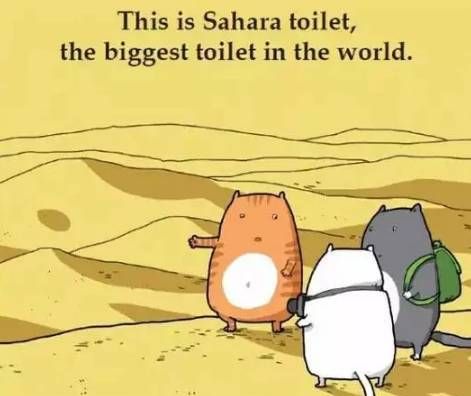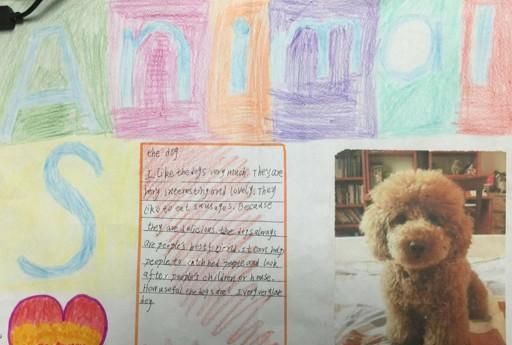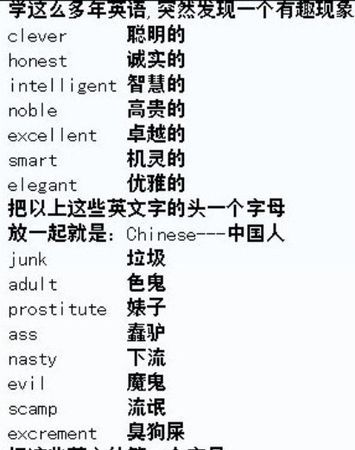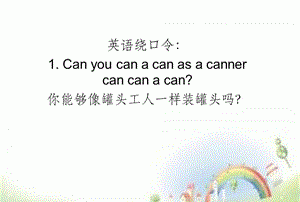本文目录
做一些有趣的事的英文短语
do something interesting

他总是做一些非常有趣的事用英语怎么说
他总是做一些非常有趣的事
He always do something very interesting

做某事很有趣的英文短语
小时候,男生总是喜欢拿虫子吓唬女生,因为他们觉得这么做看女生们的反应会感到很有趣。下面我为大家带来做某事很有趣的英语意思和相关用法,欢迎大家一起学习!
做某事很有趣的英语意思
It is interesting to do...
做某事很有趣的相关英语例句
1. The exercises can be fun and a good warm-up for the latter part of the programme.
这些练习很有趣,而且为该课程后面的部分做了很好的铺垫。
2. I would be a dolphin because dolphins are intelligent creatures, and they have lots of fun.
我会做海豚,因为海豚是聪明的动物, 而且很有趣.
3. It's fun to cook once in a while, but not every day.
偶尔做饭很有趣, 但天天做就不行了.
4. Hmm, that's an interesting hobby. What do you do with them?
嗯, 这个 爱好 很有趣. 那你拿这些车做什么呢?
5. On Wednesday, it was a sampler. She says the stripling's fun.
星期三, 要做样本拼布. 她说弯曲压线技巧很有趣.
6. It was an interesting thing to do in a new city.
在一个陌生的城市里来做这个是很有趣的.
7. Really , It'sounds interesting, and what do children always do in this day?
听起来很有趣, 那孩子们在那天都做些什么 呢 ?
8. Leonard: No, but I think it would a blast and makea good story.
里欧纳: 没有耶, 但我想那样做应该会很有趣,而且是好的新闻题材.
9. It will be interesting to see what GB does at the closing ceremony.
看看大不列颠在即将到来的开幕式能做些什么,那将是一件很有趣的事.
10. The story given here is quite interesting and really gives us an insight into DECISION MAKING.
这个 故事 很有趣,让我们对做决定有更深刻的认识.
11. Most importantly they show that, sometimes, doing the right thing can be fun.
最重要的是,他们展示出, 有时候, 做正确的事也很有趣.
12. Writing is easy, it's fun and anyone can do it.
写作很容易, 十分有趣,每个人都做得来.
13. I really enjoy my studying due to there are nothing interesting could do here.
我真的很享受我的学习,由于有没有什麽有趣的,可以在这里做的.
做某事很有趣的英文例句
1. It was a joy to see. It really made my day.
这太有趣了,真的把我高兴坏了。
2. Casey Stengel was probably the most colorful character in baseball.
凯西·施滕格尔可能是 棒球 界最有趣的人物。
3. Another interesting note was the predominance of London club players.
另一个有趣的现象是,伦敦俱乐部的球员在数量上占优势。
4. As I write, a very interesting case has come to my notice.
在我写作过程中,一个非常有趣的案例引起了我的注意。
5. Interesting distinctions can be drawn between the two populations.
比较两类人可以发现有趣的差异。
6. There is just not enough fun and frivolity in culture today.
当今的 文化 恰恰是不够轻松有趣。
7. These studies have already thrown up some interesting results.
这些研究已经得出一些有趣的结果了。
8. Of course there were lots of other interesting things at the exhibition.
当然,展览上还有很多其他有趣的展品。
9. The list of drinks, a dozen pages long, makes fascinating reading.
酒水单一共有十几页长,读起来很有趣。
10. I still find this story both fascinating and unbelievable.
我仍觉得这个故事既有趣又不太可信。
11. Psychological twists perk up an otherwise predictable story line.
心理转折使原本老套的故事情节变得生动有趣。
12. It's an interesting scientific phenomenon, but of no practical use whatever.
这是一种有趣的科学现象,但没什么实用价值。
13. "This ought to be fun," he told Alex, eyes gleaming.
“这应该会很有趣!”他对亚历克斯说,两眼闪闪发光.
14. This interesting and charming creature is unique to Borneo.
这种有趣迷人的动物是婆罗洲独有的。
15. He'll be sadly missed. He was a real character.
人们会非常怀念他的,他可真是个有趣的人啊。
做某事很有趣的双语例句
这本书很有趣。
This book is interesting.
对于历史上的事件,当时的报道往往比现代历史学家的评述更为有趣。
Contemporary reports of the past events are often more interesting than modern historians' view of them.
他把报纸上点点滴滴有趣的新闻都读了。
He read all the interesting bit in the newspaper.
她是个很有趣的人,但是她的先生却一无是处。
She is an interesting person but her husband is a real nothing.
我认为这些有趣的旧习俗应该保存下去。
I think these interesting old customs should be preserved.
英语有着饶有趣味的发展历史。
The English language has an interesting history.
读书的时候要用有趣或好玩的声音,让读书生动有趣。
Make sure to add fun and quirky voices to make the reading lively.
有趣的经历只发生在有趣的人身上。
Interesting experiences only happens to interesting people.
那个有趣的家伙对有趣的电影感兴趣。
The interesting man is interested in the interesting films.

让我们做一些有趣的事吧英语
让我们做一些有趣的事吧,翻译是:Let's do something interesting.
句子解释:
let 英[let] 美[lɛt]
[词典] 允许,任由; 让,随; 假设; 出租;
[例句]People said we were interfering with nature, and that we should just let the animalsdie
人们说我们是在干涉自然界,还说我们应该任由动物死去。
something 英[ˈsʌmθɪŋ] 美[ˈsʌmθɪŋ]
pron. 某物,某事; 重要的事物[人],有一定意义的事物;
n. (表示不确切的描述或数量) 大致,左右;
adv. 非常; 有点; 大约;
[例句]He described the smell as something between a circus and a seaport.
他形容那种气味介于马戏团和海港的味道之间。
interesting 英[ˈɪntrəstɪŋ] 美[ˈɪntrɪstɪŋ]
adj. 有趣的; 令人感兴趣的,有趣的; 引起兴趣的; 令人关注的;
[例句]It was interesting to be in a different environment.
到一个全新的环境中是很有意思的。

以上就是关于做一些有趣的是英文 ,做一些有趣的事的英文短语的全部内容,以及做一些有趣的是英文 的相关内容,希望能够帮到您。

